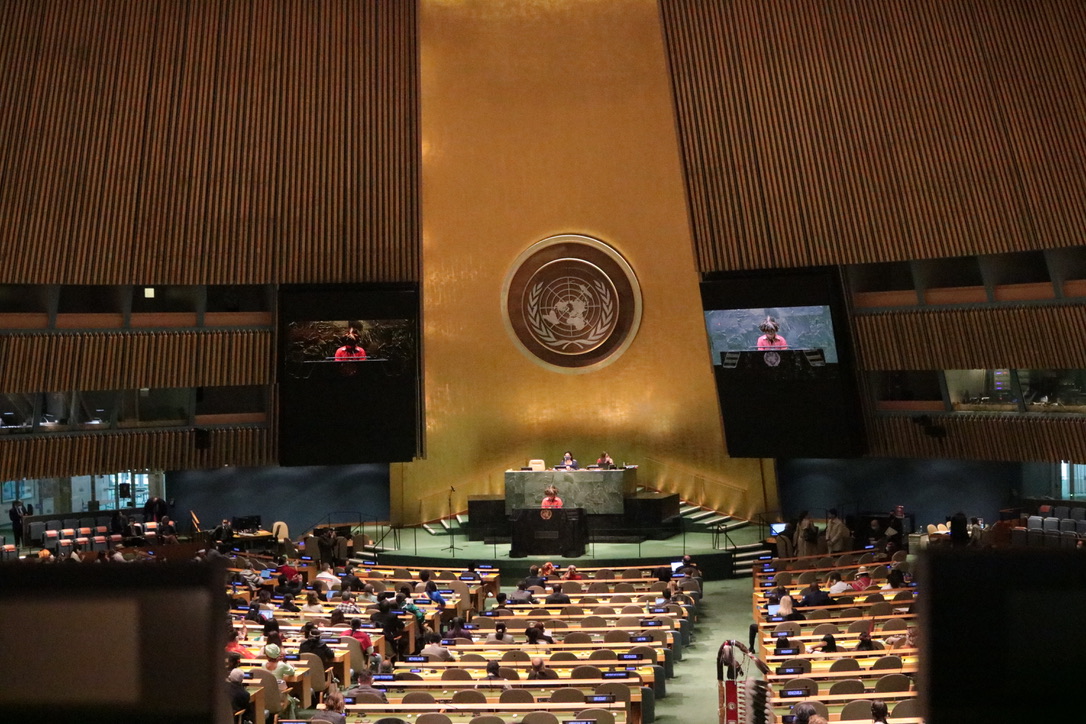
- Details
- By Native News Online Staff
This story is published as part of the Global Indigenous Affairs Desk, an Indigenous-led collaboration between Grist, High Country News, ICT, Mongabay, and Native News Online.
NEW YORK – The United States Mission to the United Nations Friday announced the U.S. delegation to the 22nd Session of the UN Permanent Forum on Indigenous Issues, to be held April 17-28 at the United Nations Headquarters in New York.
Secretary of the Interior Deb Haaland and Ambassador Linda Thomas-Greenfield, U.S. Representative to the United Nations, will serve as Heads of Delegation. Secretary Haaland will deliver a keynote address during the opening session Monday, April 17.
The theme of this year’s session is “Indigenous Peoples, human health, planetary and territorial health and climate change: a rights-based approach."
Several tribal leaders and others from throughout Indian Country are expected to attend the forum. Among the attendees will be National Congress of American Indians President Fawn Sharp (Quinault), who will speak on environmental issues.
The Biden-Harris administration remains committed to strengthening U.S. government relations with U.S. tribal leaders and advancing the well-being of Indigenous peoples across the globe, according to a press release issued by the U.S. Department of the Interior.
More Stories Like This
Native News Weekly (August 25, 2024): D.C. BriefsNative News Weekly (February 22, 2026): D.C. Briefs
NCAI Releases Sttatement on the Passing of Rev. Jesse Jackson
Colusa Indian Energy Participates in Port of Quincy Town Hall on Columbia Basin Power Project
Q&A: Jingle Dress Dancer Answered Call to Ceremony in Face of ICE Violence
Help us defend tribal sovereignty.
At Native News Online, our mission is rooted in telling the stories that strengthen sovereignty and uplift Indigenous voices — not just at year’s end, but every single day.
Because of your generosity last year, we were able to keep our reporters on the ground in tribal communities, at national gatherings and in the halls of Congress — covering the issues that matter most to Indian Country: sovereignty, culture, education, health and economic opportunity.
That support sustained us through a tough year in 2025. Now, as we look to the year ahead, we need your help right now to ensure warrior journalism remains strong — reporting that defends tribal sovereignty, amplifies Native truth, and holds power accountable.
 The stakes couldn't be higher. Your support keeps Native voices heard, Native stories told and Native sovereignty defended.
The stakes couldn't be higher. Your support keeps Native voices heard, Native stories told and Native sovereignty defended.
Stand with Warrior Journalism today.
Levi Rickert (Potawatomi), Editor & Publisher

